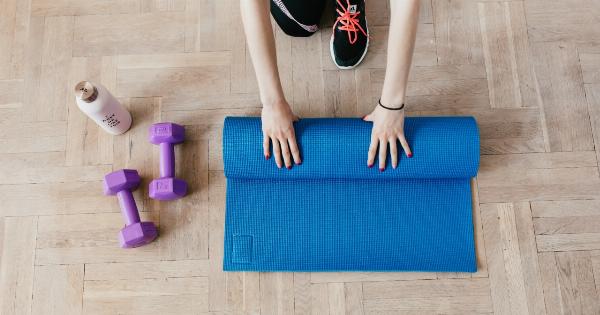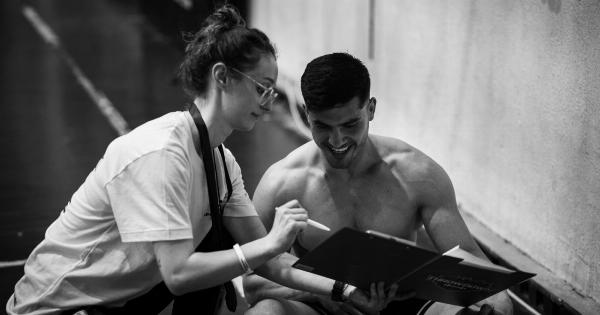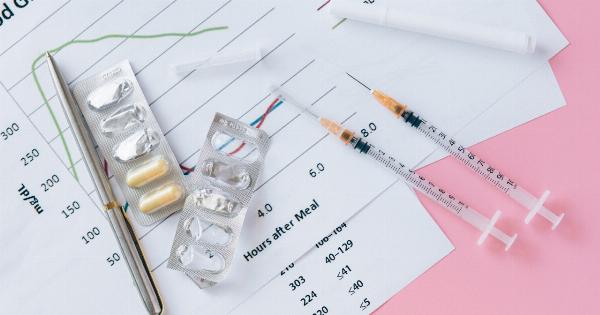Sugar has long been a hot topic in the world of athletics. With athletes constantly seeking ways to optimize their performance, the role of sugar in achieving optimal results has been extensively studied by scientists.
In this article, we delve into the scientific evidence surrounding when to regulate sugar intake for athletes to achieve their best athletic results.
The Role of Sugar in Athletic Performance
Before we explore the timing of sugar regulation, it is crucial to understand the role of sugar in athletic performance. Sugar, in the form of glucose, serves as the primary source of fuel for our muscles during exercise.
During intense physical activity, our body breaks down glycogen stored in muscles and liver into glucose, which is then used as energy. However, glycogen stores are limited, and that’s where sugar comes into play.
Consuming sugar before or during exercise can provide an immediate source of glucose, replenishing glycogen stores and sustaining energy levels.
The Effects of Pre-Exercise Sugar Intake
Several studies have explored the effects of pre-exercise sugar intake on athletic performance, with varying results.
Some research suggests that consuming sugars, such as glucose or sucrose, before exercise can enhance endurance and overall performance.
For instance, a study published in the Journal of Applied Physiology found that consuming glucose before exercise improved endurance by increasing glycogen stores and maintaining stable blood glucose levels.
Similarly, another study in the European Journal of Applied Physiology reported that sucrose ingestion prior to exercise led to better time trial performance in cyclists.
However, it is important to note that the effects of pre-exercise sugar intake can vary depending on the duration and intensity of the exercise, as well as individual factors such as fitness level and carbohydrate metabolism.
Therefore, athletes should consider experimenting with timing and types of sugar to find what works best for their unique needs.
The Case for Sugar During Exercise
Ongoing research suggests that consuming sugar during prolonged endurance exercise can provide a significant performance boost. The availability of glucose from sugar allows the working muscles to maintain their energy supply and delay fatigue.
A study published in the Medicine and Science in Sports and Exercise journal demonstrated that the ingestion of carbohydrates, including sugar, during endurance exercise resulted in improved performance and delayed fatigue.
This strategy is particularly beneficial for activities lasting more than 60-90 minutes.
Furthermore, sugar intake during exercise may also help maintain proper hydration levels. Carbohydrates, including sugar, enhance water absorption during exercise, aiding in fluid balance and preventing dehydration.
The Timing of Post-Exercise Sugar Intake
Post-exercise sugar intake also plays a vital role in athletic recovery. After exercising, the body is in a state where it rapidly absorbs and utilizes nutrients to replenish glycogen stores and repair damaged muscle tissues.
Studies have shown that consuming sugar, alongside protein, within the first 30 to 60 minutes after exercise can optimize the rate of glycogen synthesis and aid in muscle recovery.
This post-exercise “window of opportunity” is often referred to as the glycogen resynthesis phase.
Moreover, sugar intake following exercise is particularly important for athletes engaging in multiple training sessions or competitions within a short time span.
Rapid glycogen restoration allows for increased energy levels and better performance in subsequent exercise sessions.
Individual Considerations and Sports Specificity
As with any nutritional strategy, individual considerations and the specific demands of different sports play a critical role in determining the optimal timing of sugar regulation for athletic performance.
Endurance athletes, such as marathon runners or cyclists, are more likely to benefit from pre-exercise and during-exercise sugar intake due to the prolonged duration of their activities.
On the other hand, athletes engaging in short, explosive bursts of energy, like sprinters or weightlifters, may find the benefits of sugar intake to be less significant.
Additionally, individual factors such as personal preferences, gastrointestinal tolerance, and training goals should all be taken into account when determining the best approach to sugar regulation for athletic results.
Conclusion
When it comes to regulating sugar for optimal athletic results, the scientific evidence suggests that timing indeed matters.
Pre-exercise sugar intake can enhance endurance, while consuming sugar during exercise provides a readily available source of energy and aids in maintaining hydration. Post-exercise sugar intake promotes glycogen resynthesis and muscle recovery, vital for athletes engaging in multiple training sessions or competitions.
However, it is important to remember that every athlete is unique, and individual considerations, along with sport specificity, should guide the decision-making process regarding sugar intake.
Experimentation and seeking guidance from sports nutrition professionals are crucial in finding the optimal sugar regulation strategy to support athletic performance.































